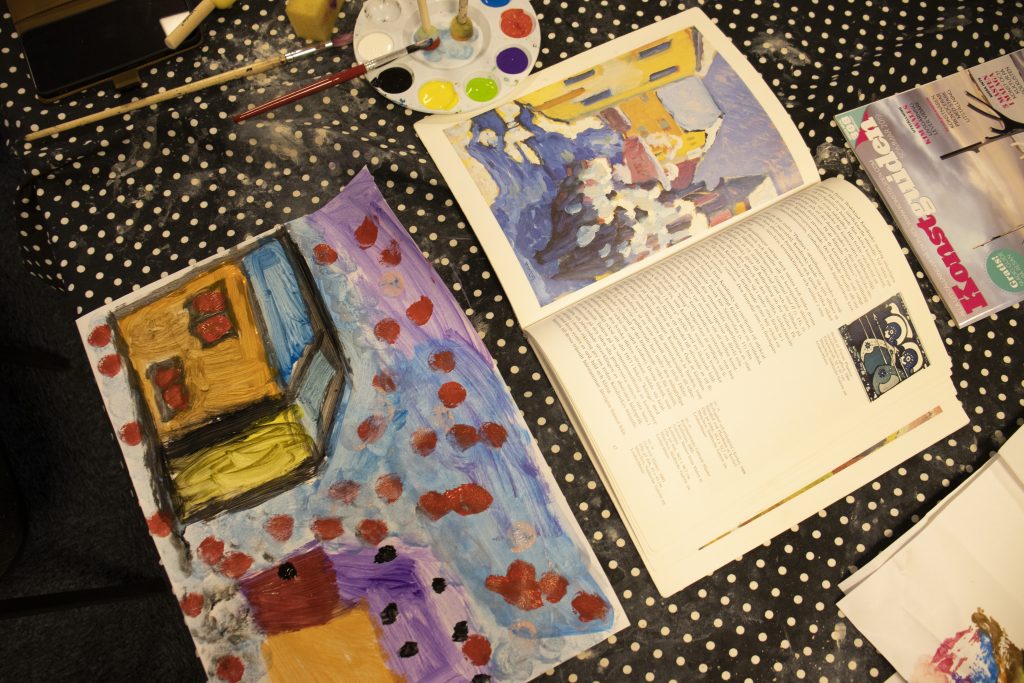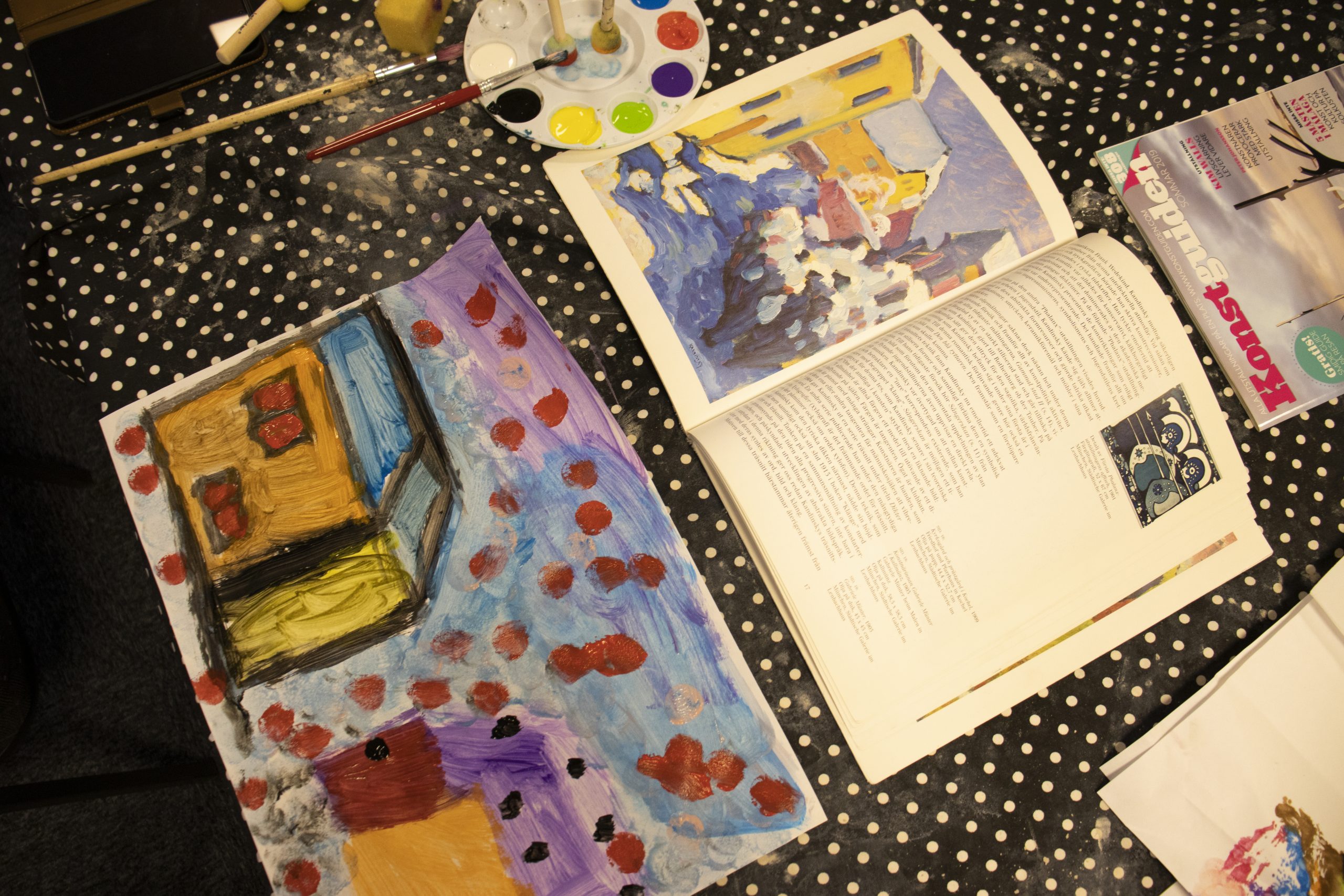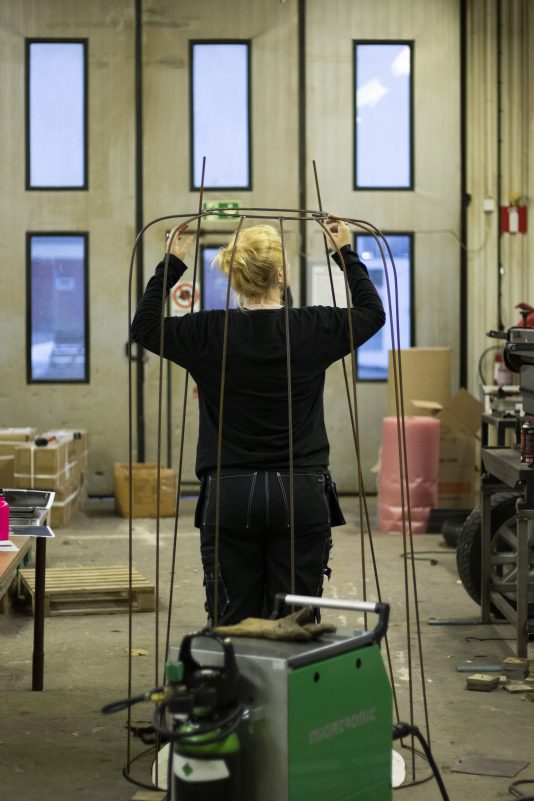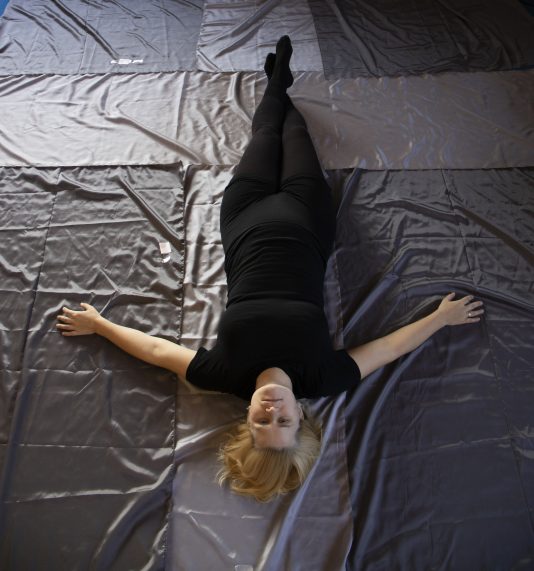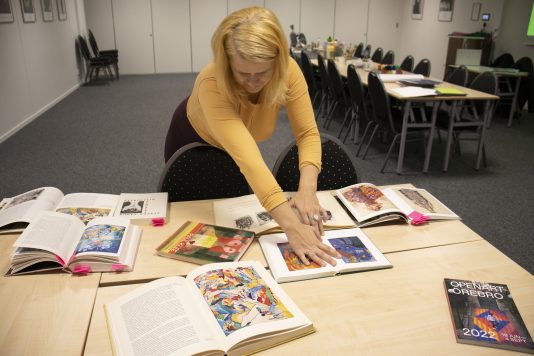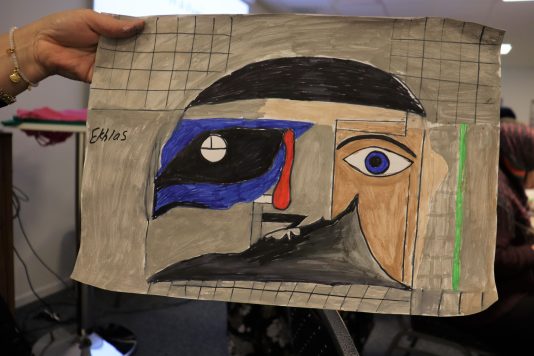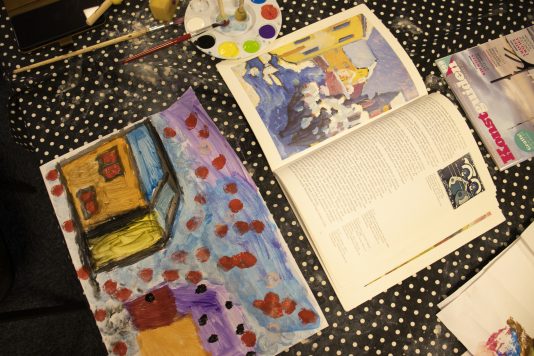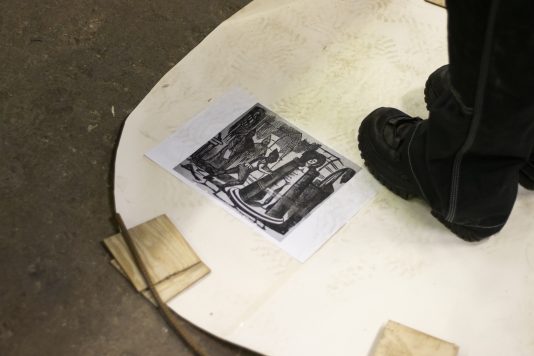Ellen Freed is a local artist in Örebro. While she is a new acquaintance of the OpenArt organization, she is not new in the art scene, having spent 12 years in London working as a performance artist. During Freed’s residency period, she has connected “degenerate art”, lack of good vandel/morals, cultural canon and the iron maiden.
The newly inaugurated Swedish government proposes a cultural canon, and that lack of lifestyle should be the basis for deporting people – lack of good vandel/morals.
The term “degenerate art” was used by the Minister of Propaganda in Nazi Germany to describe art that was perceived as immoral, distasteful, or illegal.
An iron maiden is fictional instrument of torture and execution, first being made in 19th century but presented as something that had been used during medieval times.
Freed worked together with participants at Trappan Resource Centre, a non-profit organization that works to empower recently arrived women in Sweden, providing them with resources and support to improve their self-confidence and language skills, as well as to expand their network of contacts.
During her time at the Centre, Ellen collaborated with a group of these women, leading workshops and classes on art and creativity through a variety of mediums. This provided an opportunity for the participants to explore new forms of expression, and to gain a sense of empowerment through their artistic creations.
Ellen’s work at the Centre was centered around the concept of “degenerate art”. With this term, Freed delved into this concept in her classes, using it as a starting point for discussions on art and censorship, and examining how the same ideas around cultural purity and morality have been repackaged and rebranded in different contexts over time.
Additionally, Ellen also delved into the concept of “lack of good vandel/morals” and the cultural canon. As the new government in Sweden is raising questions about cultural heritage, Freed’s art practice acts as a lens to reflect on the situation and its meaning. Through her residency, Freed was able to explore the complexities of censorship and societal norms in relation to the role of art in society and gain a deeper understanding of how different perspectives on culture and art can affect and shape individuals and communities.
In her new performance, Freed is taking all this knowledge and research and placing herself in an iron maiden, the iron maiden being the vessel that holds all of this and becoming Freed’s contribution to the new proposed reality.
Curatorial text by Felicia Bjärmark Esbjörnsson
